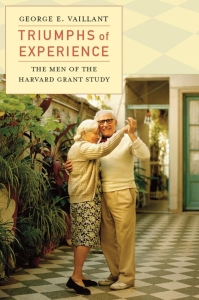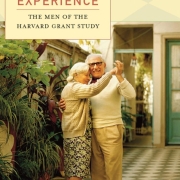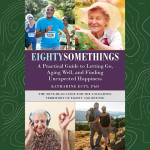Triumphs of Experience – Part 1 | Healthy Aging Series: S8, E2
Reading time: 3 minutes.
Karate Kid. Cobra Kai. Mr. Miyagi.
I hope I’ve conjured up some images from either the Karate Kid movies or the very successful new series Cobra Kai on Netflix. The Cobra Kai series is so bad that I love it. If you haven’t seen it, it’s about two characters, Daniel LaRusso, and Johnny Lawrence, and their complete and total inability to learn from and let go of the past.
How does this introduction relate to a blog on healthy aging and to the book I am reading “Triumphs of Experience“? Most of us will struggle with our past. We might regret choices and decisions we’ve made. If you’re aging, which all of us are, the years move on, habits are formed, and opportunities are missed. Or, we create a past that will ensure a meaningful and successful future.
What if you could learn from the lives of others, learn from their mistakes, and from her successes? What if you could follow their lives from late adolescence, from 20 years old until they died?
That’s what the Harvard Grant Study did. The results of the study are shared in a book entitled “Triumphs of Experience: The Men of the Harvard Grant Study,” written by George Vaillant.
In 1937, William T. Grant offered Harvard University a huge grant, amounting to $1 million in today’s money, to study men, eventually totally 268 sophomores from Harvard University. Grant owned a chain of department stores and was interested in developing a criteria that would predict the characteristics of a successful store manager.
Warning label: let’s make one obvious observation about this study. The subjects of this study were white men, attending an Ivy League school, and therefore this study can have limited application to most, or at least the majority of people in our country.
Having given you a warning label about the study my advice about reading the book or reading a blog about the study is this: take what you like, and leave the rest. Having said that, this study is seriously a one-of-a-kind study, akin to the longitudinal studies that have been done on nurses and Catholic nuns. Yes, these studies do exist.
I don’t want to bog you down with the details about the study. Chapter 3 of Vaillant’s Book will give you a history of the study. What I do want to do is to give you an overview of the lessons learned from the grant study, and then spend four or five more blogs, breaking down those lessons.
What is the clearest message from this 85 year study? Good relationships keep us happy and healthy. The author, who was also the Director of this study for about four decades, reported that there were two foundational elements gathered from the study. “Love is one,” writes Vaillant. “The other is finding a way of coping with life that does not push love away.“
So, what were the lessons learned from this study?
First, there is such a thing as good mental health, and having good mental health contributes to a happier and healthier future. Throughout the blogs that I written, I’ve focused on psychological resiliency. Refer to the “How to Keep your Head in the Game” blog that was written a few months back.
Second, there should be a focus on coping skills to help us endure life’s slings and arrows. I have focused a lot on Mindfulness Practices and Medications in my personal life and in my practice. One of the best tools you can learn as you age.
Three, the most important influence on a flourishing life is love. The majority of men in the study who flourished found love before 30. What can I say? I love my wife, my sons, my granddaughters, my family, and my friends. They keep me afloat. They give my life meaning and purpose. Yeah, people who need people…
Four, what goes right is more important than what goes wrong. I liked this lesson. I work out. I learn. I continue to work and stay active. I try to eat right. All these “right” things are helpful in counteracting, or holding off the “wrong” habits and genetics that will event catch up to me.
Five, people can change and people really can grow. People really can grow!! You can teach old dogs new tricks!!
Six, if you follow people’s lives long enough, they change and so do the factors that affect healthy adjustment. It amazed me that it was impossible to predict how a person’s life would turn out. Sure, there were things that made success more or less predictive, but people are unpredictable. You are unpredictable and your future is not yet written. Such hopeful words!
I’m thinking back on the Cobra Kai series, and the endless bickering and fighting and competition that Daniel and Johnnie engage in. Life is best when we can rise above that petty competition and focus on love and relationships. Sounds corny, but as we will see in the coming blogs, only people that learn these lessons turn out to be a real winners.

“TRIUMPHS OF EXPERIENCE: THE MEN OF THE HARVARD GRANT STUDY,” WRITTEN BY GEORGE E. VAILLANT
To see more entries in the Healthy Aging series, click here.













